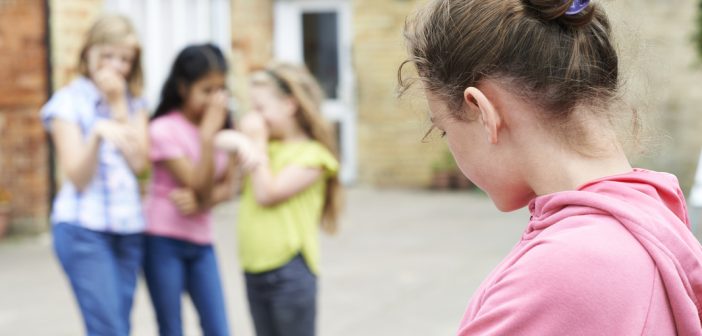As a parent, it is incredibly upsetting to hear that your child is being bullied. It can also be very hard to realise it’s going on. Sadly, the chances of it happening are high, with one in four children bullied at school in Australia. So what is bullying and how should you react if your child becomes a victim of bullying?
The many faces of bullying
Bullying comes in different forms, some overt and some very subtle. It might involve physically or verbally intimidating or hurting someone. Alternatively, it might involve deliberately excluding someone from an activity or, as is becoming increasingly common these days, using various forms of cyberbullying. Whatever type of bullying a child goes through, it is obviously a deeply traumatic experience, which can have a profoundly negative impact on them in the long-term.
Recognising signs of bullying
Because victims of bullying are often too scared or embarrassed to report bullying, it can often go unnoticed and parents are unaware it is happening. As a parent, there are certain signs of bullying you can watch for in your child at home. These include:
-
A sudden change in behaviour, particularly frequent anxiety, mood swings or different eating habits
-
Not wanting to go to school
-
Not sleeping well or having nightmares
-
Unexplained scratches and/or bruises
-
Asking for more money for school dinners
How to help your child
If your child reveals to you that they are being bullied, your primal parental instinct may be to become very upset and ring the school in a fit of worry or anger; it’s only natural to feel emotional. However, try to stay calm and focus on these steps:
-
Remember that it takes a lot of courage for a child to come forward about being bullied.
-
Praise your child for confiding in you and reassure them that they’ve done the right thing.
-
Emphasise to your child that they haven’t done anything wrong; the bully has.
-
Contact the school about it. Explain to your child beforehand why it is best – and safe – to do so.
-
With your child, talk through how best to react to bullying. Talk about the importance of not mirroring the bully’s behaviour, but rather of doing things like holding in any anger and walking away, sticking with friends as much as possible and confiding in an adult they trust.
-
Consider together why bullies often bully. For example, they are often not very happy themselves or are seeking attention, or may be dealing with a difficult situation at home. Raising this awareness can be an empowering and helpful tool for a child. This graphic on using kindness to overcome bullying offers a useful visual guide to some of the key things to address when helping your child.
Coping with bullying is tough for both the child being bullied and the parents. Try to remember that being aware that your child is being bullied is the first positive step to putting an end to it appropriately. And, with more and more initiatives in place to raise awareness about bullying in schools and how to tackle it, there is plenty of support available for students and parents alike.



1 Comment
Pingback: This Is How To Beat Negative Self Talk In Kids - School Mum